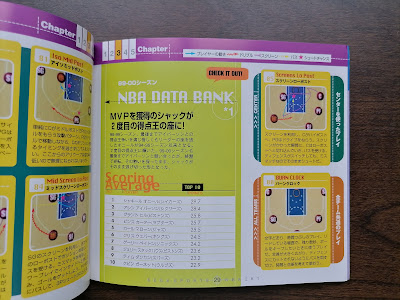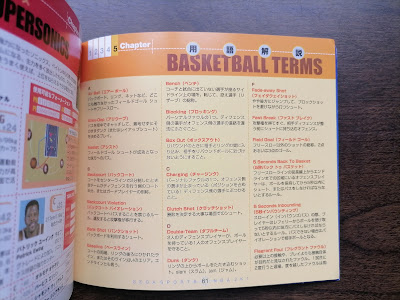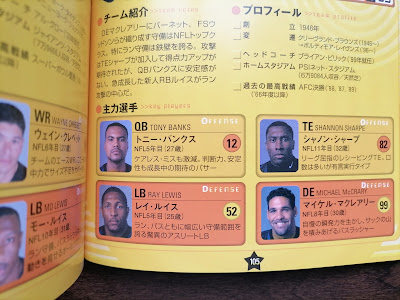Designed and published by Midway Games, Inc for the Sega Dreamcast in 1999, NBA Showtime is still worth playing in 2024, and its 128-bit graphics are worth preserving — for character artists and gamers alike.
When we position NBA Showtime on the Dreamcast amongst today’s sports games, something interesting happens. Showtime feels surprisingly fresh with its simple controls and tight playing moves. That is because Showtime is accessible in a way that modern NBA 2K purposefully never will be.What’s more, Showtime’s old-school graphics and big time dunks led me to a major premise — design choices can impact the lives of the people who create and consume a game. That is because design choices made by big tech directly impact game budgets, development staffing decisions, and can even manipulate player spending habits, too. Powerful.
Without question, economical and responsibly made sports games are needed in the 2024 sports game market. NBA Showtime is a reminder of what is possible on hardware from over 20 years ago; and its 128-bit design may serve as a prescription in the face of an industry profiting billions off of gambling mechanics in sports games.
NBA Showtime’s Economical Design
I did not expect to play Sega Dreamcast sports games in 2024. And upon powering up, I did not anticipate Showtime’s orchestral strings to invoke such strong emotions about its standing. But when we position it amongst today’s lineup of sports games, nothing actually compares. Whereas NBA 2K, the top selling NBA Basketball game series of the last decade, adopts a model of endless combinations and movesets, Showtime has just four buttons. Easy. One of those buttons is capable of launching three point shots high into the atmosphere, where the basketball seems to sky just long enough to remind yourself to breathe. Hence, the game does fun things with the sport through its iconic presentation — taking a three-pointer and turning it into an exciting event to replay over and over.
More importantly, Showtime is offline, and thus not connected to your credit card. It feels honest — unlike today’s games ruined by wallet exploits and complicated control schemes. The NBA 2K series, a prime culprit, builds its obfuscated player ratings and movesets into its game economy systems. Yes, the NBA’s flagship game has endless shops of in-game items to purchase. Everything is for sale.
Moreover, sports gamers today are at the mercy of the engineers at 2K Sports because 2K’s gameplay is constantly patched, often without notice — an unethical and potentially illegal business practice. For example, an animation purchased in week one of a game release might lose all value by week ten. Thus, 2K’s confusing layers of ratings systems are purposeful, designed to extract maximum funds out of players’ pockets.
Contrasting with 2K, Showtime’s rosters are locked in at specific ratings, and the game features a handful of player archetypes. Bigs, mids, and guards. That is it, and it works. Showtime is a game to enjoy, and its designers emphasized quick-hitting matches to keep the gameplay loop moving. For arcade machines, the gameplay loop was profitable, but on Dreamcast, players can play endless matches for a flat fee. For context, I purchased the game on eBay for the fitting price of $19.99 in late 2023.
Additionally, Showtime provides an abundance of what it calls its “coaching tips” in-between quarters that provide insight into the game’s AI and logic. Hence, we know a good deal about how Showtime works. And Showtime is not going to unilaterally change its player ratings any time soon via an online update.
When we look at Midway's arcade baller today, its simplicity comes across as a bit underrated. The graphics are blocky, the animations — awkward. But that is part of its charm, and the game can still hammer home the dunks on the genre to remind everyone it is still fun.
A 128-Bit Prescription for the Industry
Remasters of 128-bit polygon arcade games like Showtime may be a compromise for all parties to the sports gaming ecosystem. That is because NBA Showtime’s art-style is highly affordable for the industry to adopt in 2024. As such, a remaster of an NBA Showtime in 2024 would be less laborious on designers, and cost less than most AAA games. For an industry known to run artists into the ground, a remaster is a win. While this argument glosses over the issue of obtaining the requisite licensing for all the players, there are always solutions when there is money to be made. We can trust in that notion.
The benefits of 128-bit games also extend to graphic designer and artist employment terms. Silicon Valley’s unethical practice of hiring and firing artists in waves is unnecessary when a 128-bit game costs a fraction of a major simulation sports production in 2024. The 128-bit graphic design choice is an act of acknowledgement to the artists from generations ago. Remasters can take us back to our roots, and maybe that is something the industry needs right now.
Lower development costs for a 128-bit production also thereby lessen big tech’s need to exploit players through in-game monetization systems. And while we cannot conclusively draw a line between development costs and microtransactions in our games, we can certainly argue the correlation. Lower costs have numerous benefits on the industry. Art direction matters.
Thus, remasters of classic sports games like Showtime represent a path towards dignity for everyone the game touches. Remasters can honor the original artists of NBA Showtime, while treating the artists of today with dignity. And remasters lessen the need for companies to build in morally bankrupt gambling modes into sports games. The premise is simple — companies should have a profound respect for persons and dignity. Human rights should be a part of our game design choices and the industry as a whole.
When we revisit NBA Showtime in 2024, it is less about nostalgia and more so about what the game now represents in the sports genre. The use of 128-bit graphics in sports games in 2024 is a practical path to more humane treatment of game artists and sports game players.


















